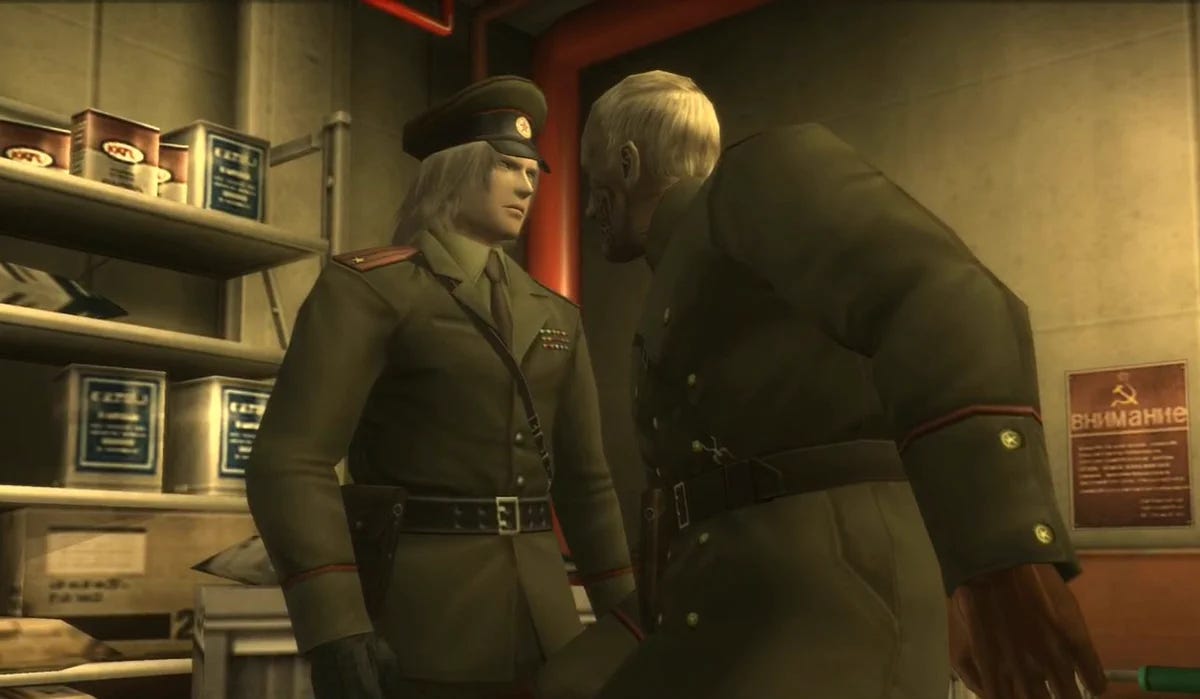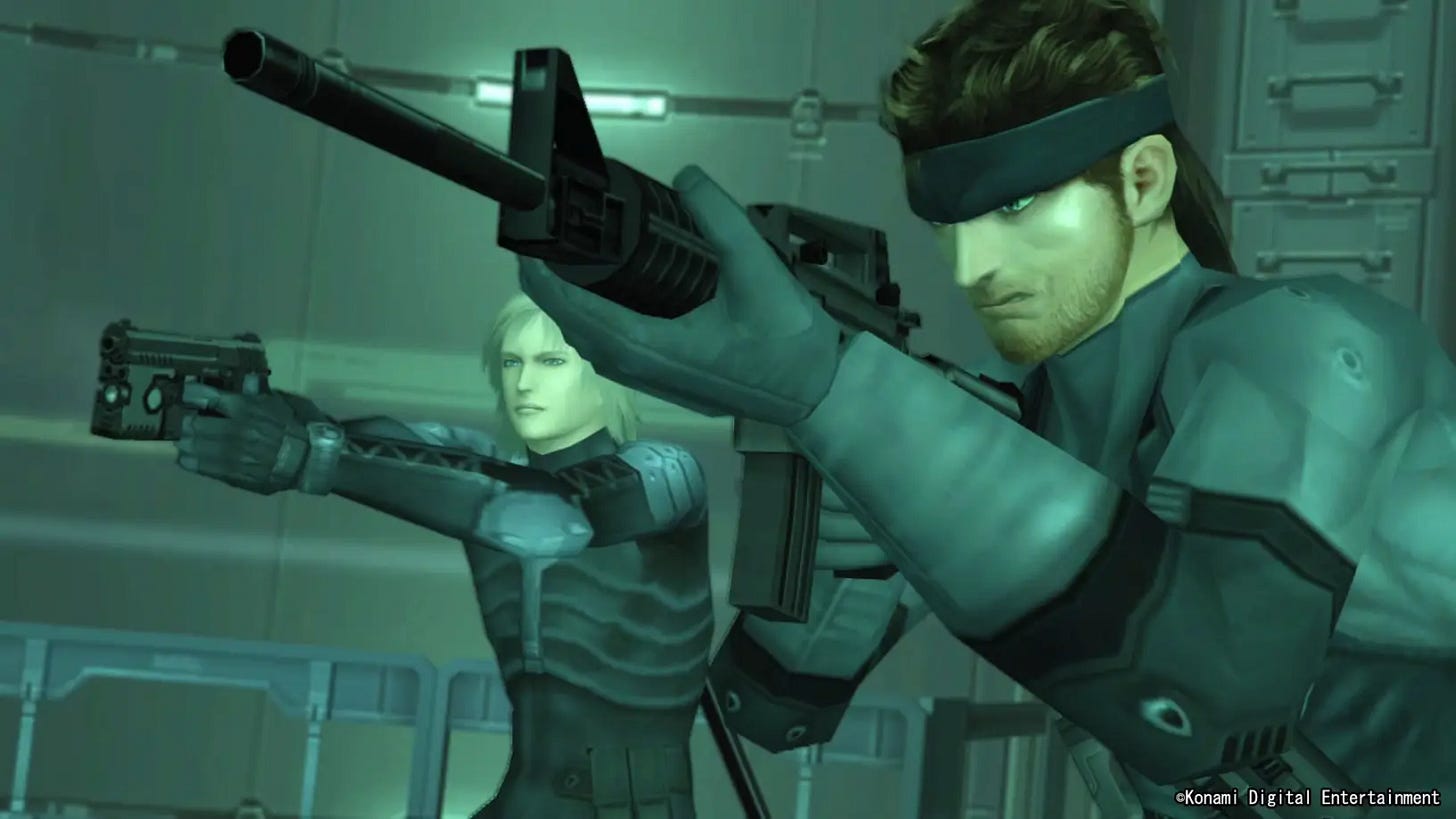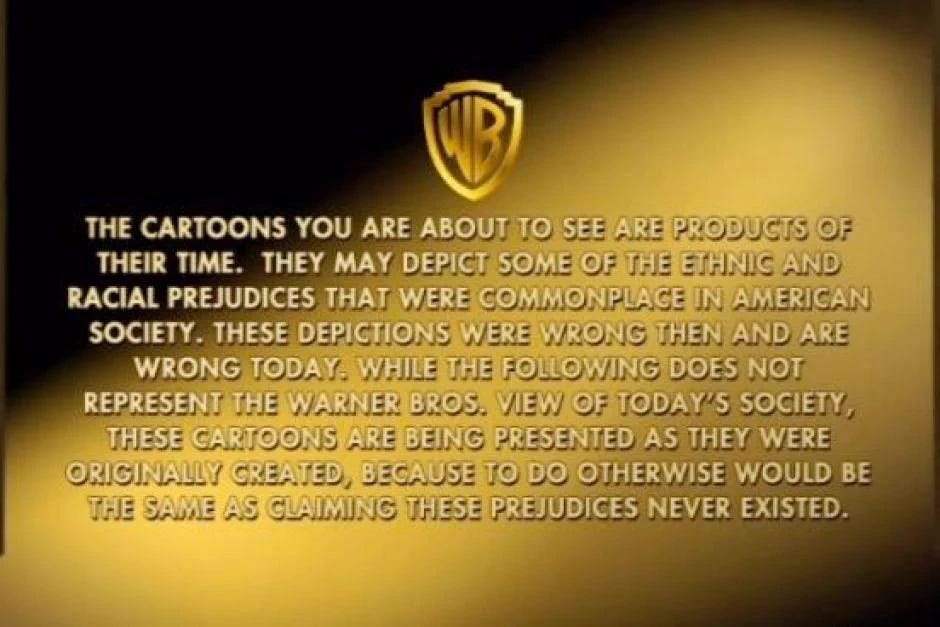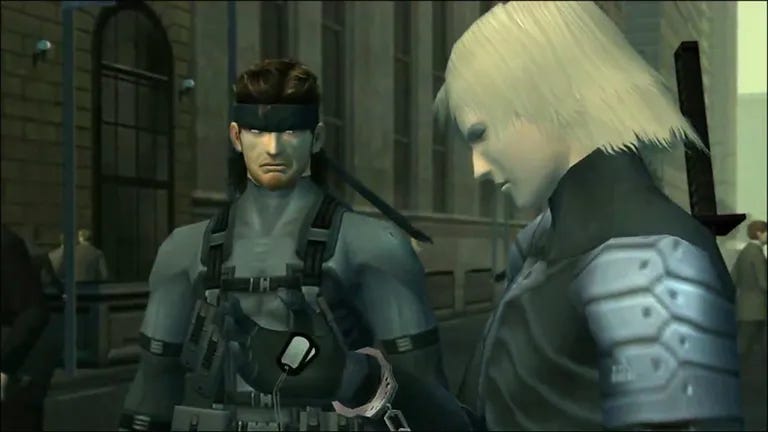No, "Metal Gear Solid" Doesn't Need a Content Warning
Konami's added player advisory text in their upcoming collection illustrates a worrying modern trend.
If you asked me what my favorite video game series was, the answer would be Metal Gear Solid without question.
From each entry’s evolving stealth gameplay to their complex storylines which delve into everything from nuclear geopolitics to the human cost of war with enough cardboard boxes to shake a stick at, Hideo Kojima’s epic saga is one unlike any other.
I was introduced to Metal Gear far later than its 1987 MSX2 debut because of my age, but I’ve played every major entry and consider myself to be well-versed with the games’ lore and characters. For the longest time, much of the series was unfortunately stranded to older hardware, but that is set to change later this year when the first volume of the Metal Gear Solid: Master Collection hits shelves for PC and modern consoles.
The announcement has been cause for both celebration and concern among MGS fans. On one hand, the games being available on current platforms mean that they will be more accessible than ever both to players new and old. There is also a plethora of extensive bonuses, much of which is content previously never seen outside of Japan. Yet revelations that most of the content would not be on the physical cartridge of the Nintendo Switch port and that it would have a lower frame rate than the other versions are already leading to controversy.
To pour further gasoline onto the fire, Konami has done something which I view to be even more egregious from the standpoint of creative expression and integrity. All copies of the collection will ship with an advisory message warning that some content “may be considered outdated,” but adding that nothing has been changed in order to preserve “the creator’s original vision” without mentioning Hideo Kojima by name.
Some, perhaps even the majority of players, will view this added text as a minor trifle and nothing to be up in arms over. Yet I believe that its presence both contradicts the spirit of what Metal Gear stands for with its themes and signifies the troubling times we live in when it comes to viewing media from the past. One does not even have to be a gamer to see why this matters.
In the final hours of Metal Gear Solid 2: Sons of Liberty, the player is confronted with a long series of in-game conversations about censorship, digital information, artificial intelligence, and the evolving nature of truth, among other philosophical themes. This dialogue was a gut-punch in 2001, especially considering that few video games dove into such material at the time. One can see why MGS2 has only grown more prescient in the two decades since its release, but how to interpret Kojima’s often convoluted writing typically becomes a Rorschach test depending on one’s own political opinions.
Regardless, what is most relevant here is a piece of dialogue spoken by the game’s true villains who have been misleading protagonist Raiden the entire time and are revealed to be a shadowy organization controlling the United States known as the Patriots. I’m hugely oversimplifying a very complicated narrative, but bear with me.
“The digital society furthers human flaws and selectively rewards the development of convenient half-truths. Just look at the strange juxtapositions of morality around you,” the Patriots’ A.I. system says.
Raiden accuses the Patriots of manipulating information and creating a censorious society, but the A.I. system retorts that their goal is to “create context” in a line that has aged like fine wine:
“Who else could wade through the sea of garbage you people produce, retrieve valuable truths and even interpret their meaning for later generations?”
Whether Konami is aware of it or not, they have become the very thing Hideo Kojima warned about back in 2001 with their re-release of his games in 2023. By framing that some of Metal Gear’s content “may be considered outdated,” they are already attempting to “create context” before the player has even pressed the start button. Veteran fans who understand MGS2’s complex themes in particular will undoubtedly see the irony of this needless message, but those new to the series will have their prior impressions of Metal Gear wrongly colored because of Konami’s patronizing hand-holding.
Those who still don’t see what the big deal is will point out that no storyline content (as far as we currently know of) has been changed. Yet I would argue that the inclusion of a warning implies that Konami views the old Metal Gear games to have content they view as shameful or something they need to apologize for. I’m honestly struggling to understand what these supposedly outdated “expressions and themes” could even be, as other games from its era such as the Grand Theft Auto PS2 trilogy and Manhunt series contain far more sexual and violent content, but their subsequent re-releases on other platforms contain no such warnings.
Metal Gear is known for having some degree of sexual themes, from using adult magazines to lure soldiers away from their patrol routes to a female spy modeled after Lupin III character Fujiko Mine who uses her buxom assets to her advantage. It was also one of the earliest series that I know of to have openly bisexual characters with the villains Vamp and Colonel Volgin, the latter of whom gropes the protagonist’s groin in Metal Gear Solid 3: Snake Eater before painfully torturing him. Could any of this be what Konami is concerned with? If so, I find such fears to be laughably misguided. Hideo Kojima is always equal opportunity with showing sexy female *and* male characters, while bad guys doing bad things shouldn’t be viewed as anything controversial.

I shouldn’t have to point out the obvious, but Metal Gear is rated M for Mature by the ESRB or the equivalent in other regions. These are games intended for adult audiences, and yet we unfortunately seem to now live in an era where grown men and women need to be coddled like children. I half-jokingly wonder sometimes if future versions of Schindler’s List will need to have a disclaimer before the film explicitly denouncing Nazis as evil or if one day we’ll need to be directly told that slavery is bad in 12 Years a Slave by some quivering distributor.
But then again, we’re essentially at that point already, such as with Lionsgate stupidly pointing out that the 1960s were racist in their latest airings of Mad Men and U.K. television network Sky warning that The Last Samurai and Aladdin also contain “outdated attitudes.” Much of this was in response to the 2020 protests over the death of George Floyd when seemingly all companies across the world felt the need to issue a strongly-worded message showing how not racist and not bigoted they were. What we are seeing now with Metal Gear is undoubtedly a result of this irrational era of overcorrection.

Am I the only here who thinks these content advisories are all rather silly? While racism certainly exists to a degree in the U.S. and other countries, I fail to see how Tom Cruise’s role in The Last Samurai (which Japanese people actually love) or a bisexual villain named Vamp in Metal Gear Solid 2 contributes to greater levels of bigotry and discrimination. More often than not, these warnings completely miss the mark with their dismissal of historical content. The air of superiority people today have toward the past is always done with the luxury of hindsight, and what we do today will no doubt be judged with the same finger-wagging from those who live decades from now.
There is of course the question of when content advisories are appropriate. Some have pointed out that even PS1 horror games back in the day such as Resident Evil and Silent Hill warned of their violent material. While I personally think that such a message on top of an already M-rated horror game is unnecessary, I think there is a clear difference between an advisory about explicit gore and a patronizing warning about content being “outdated.” But can media actually be outdated? The most obvious example that comes to mind is how Warner Brothers handled their vintage cartoons in subsequent home video releases decades after the fact as famously shown here.
It’s no secret that WWII-era animations like Bugs Bunny Nips the Nips and Tokio Jokio contained unflattering racist depictions of Japanese people, which were common sentiments in the West during wartime. The Japanese did the same to Westerners as well. Providing a message explaining this background does make sense here because it’s a clear-cut instance of actual racist content which would not be accepted in modern polite society. Yet I think any rational person can see that there is a considerable difference between bigoted cartoons released decades ago and Metal Gear, which contains nothing of the sort.
Applying a label such as “outdated” to Hideo Kojima’s work is downright laughable considering how much prescience it holds in our modern world. With the ongoing war in Ukraine and issues like nuclear proliferation being driving geopolitical issues, the themes that Metal Gear has explored throughout its long run seem more relevant than ever. Many new players will be experiencing this series for the first time upon the release of the collection in October, but Konami has made a mistake in framing these games as containing material that is inappropriate for today’s age.
Content advisory aside, I will be buying this collection because I’ve been demanding a re-release of Metal Gear for years. Konami, however, cannot in good faith claim that it is completely celebrating the legacy of Hideo Kojima’s work when it feels the need to warn audiences about past content it appears to be ashamed of. There would be no controversy over any of this if those in charge had stuck to their guns and not pandered to a minority of potentially offended people which may not even exist and are certainly not the audience that would play Metal Gear in the first place.
Media companies should have more faith in their target audiences and this infantilization needs to stop. There is nothing about these games that Konami needs to apologize for because Metal Gear never did anything wrong. I hope that those who play this series for the first time understand that such a content advisory message is completely unnecessary and that Hideo Kojima’s themes have only continued to age well with time.
As Solid Snake tells Raiden at the end of Metal Gear Solid 2, “Building the future and keeping the past alive are one in the same thing.”







